Are you looking for a way to acknowledge and celebrate someone's exceptional academic achievements? Writing a letter to commend outstanding performance is a heartfelt gesture that can inspire and motivate. Whether for a student, a colleague, or a mentee, expressing gratitude for their hard work can make a lasting impact. So, let's explore how to craft the perfect letter that captures the essence of their success and encourages them to strive for even greater heightsâread on to discover some helpful tips!
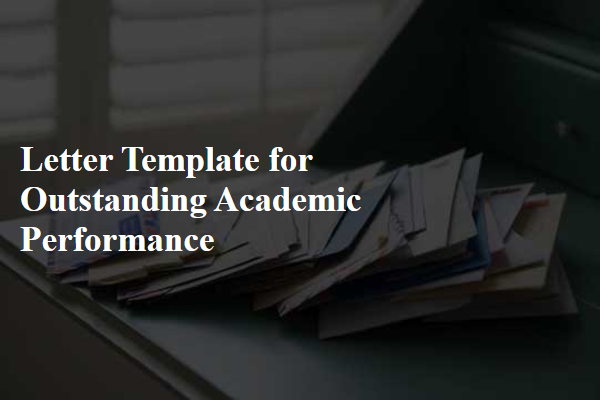
Personalization: Student's name, specific achievements.
Students who demonstrate exceptional academic performance often stand out in educational institutions. For instance, Sarah Johnson, a senior at Lincoln High School, notably achieved a 4.0 GPA while also being a top competitor in the National Science Fair. Her innovative project on renewable energy sources earned her first place in the regional competition, showcasing her commitment to sustainability and science. Additionally, her leadership skills were evident as she served as the president of the Student Council, organizing various community service events that positively impacted the local area. Such accomplishments not only highlight her dedication to education but also her ability to inspire peers and contribute meaningfully to her community.
Recognition: Highlighting academic excellence.
Outstanding academic performance is often recognized through awards and scholarships in educational institutions. Students who achieve high marks, such as a GPA above 3.8 on a 4.0 scale, are typically honored during annual award ceremonies, attracting attention from faculty and peers. Schools like Harvard University and Stanford University often celebrate these achievements in newsletters and websites, showcasing students' dedication and hard work. Achievements may include perfect scores on standardized tests like the SAT or ACT, recognition in national honor societies, or participation in prestigious academic competitions, such as the Intel International Science and Engineering Fair or the National History Day competition. Such accolades not only reflect personal determination but also contribute to college applications, enhancing a student's prospects for admission into top-tier universities.
Encouragement: Motivational message for future endeavors.
Outstanding academic performance reflects significant dedication and hard work, showcasing accomplishments by students in subjects such as Mathematics, Science, and Literature. Achieving top honors often requires overcoming challenges, balancing extracurricular activities, and maintaining a strong GPA (Grade Point Average). These achievements serve as a solid foundation for future endeavors, whether pursuing higher education in prestigious institutions like Harvard University or exploring vocational training programs. Consistent effort fosters resilience, paving the way for exciting opportunities, personal growth, and leadership roles. Encouragement lies in recognizing the potential for continued excellence, inspiring students to set ambitious goals, embrace lifelong learning, and cultivate their passions in fields such as Technology or the Arts.
Formal Tone: Professional language and format.
Academic excellence significantly enhances a student's profile, showcasing diligence, intelligence, and commitment. Institutions often acknowledge outstanding academic performance through honors such as Dean's List or scholarships, with specific criteria, including a minimum GPA of 3.5 or above. Recognition events, like award ceremonies held annually in May, celebrate top achievers, promoting a culture of academic rigor and aspiration. Achieving high grades in tough subjects, such as Advanced Placement (AP) courses, reflects not only knowledge but also critical thinking skills and perseverance. Furthermore, such accomplishments can lead to enhanced opportunities for internships or placement in prestigious organizations, increasing future career prospects in competitive fields.
Conclusion: Contact information for further communication.
Outstanding academic performance often merits recognition through various forms of acknowledgment, especially in educational institutions such as high schools or universities. Achieving a GPA of 4.0 or higher, participating in advanced placement courses, or receiving distinctions in national competitions can exemplify exceptional dedication and intellectual capability. Teachers, administrators, or scholarship committees often reach out with contact details for further communication regarding opportunities for scholarships, academic honors, or invitations to exclusive educational events. Such correspondence emphasizes not only the importance of student achievements but also the continued support from educators and institutions in fostering future academic pursuits.

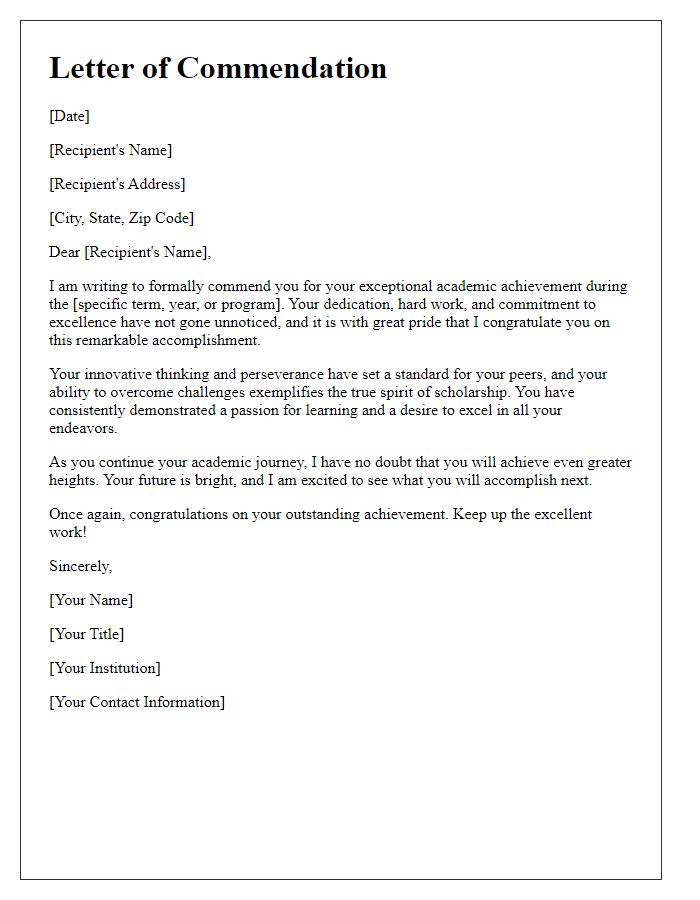
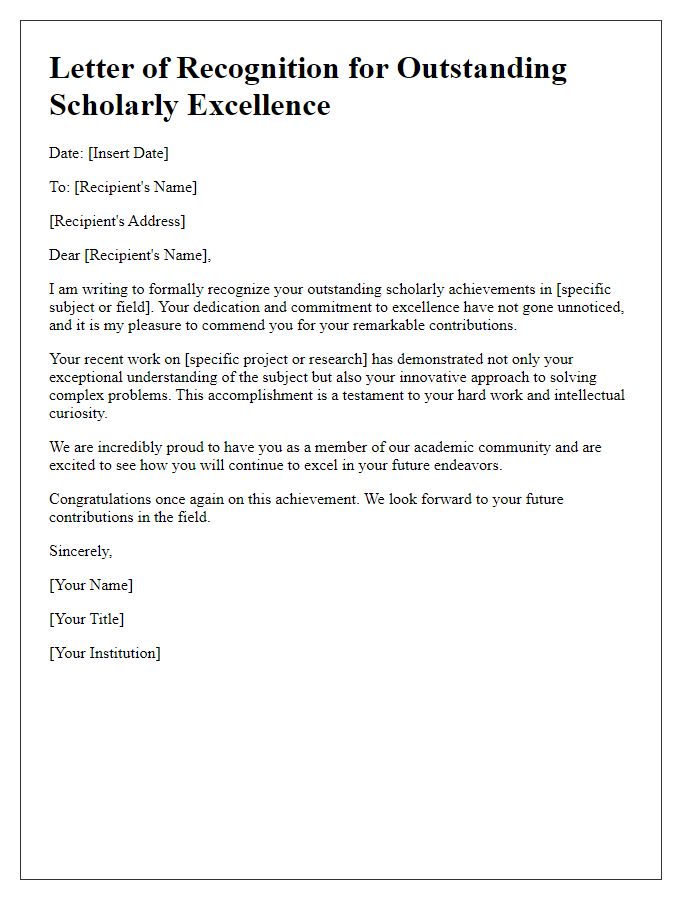
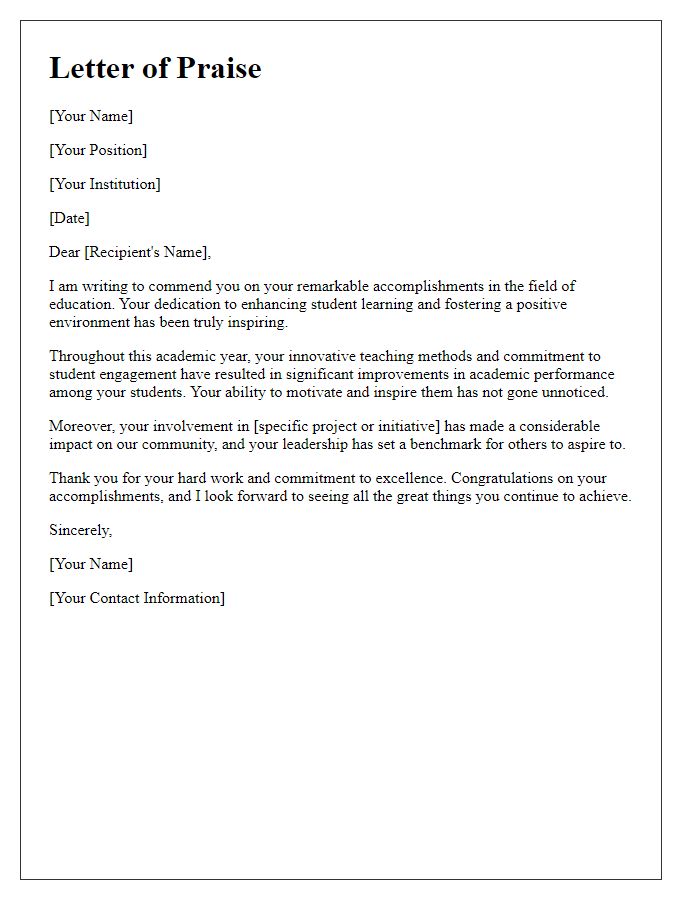
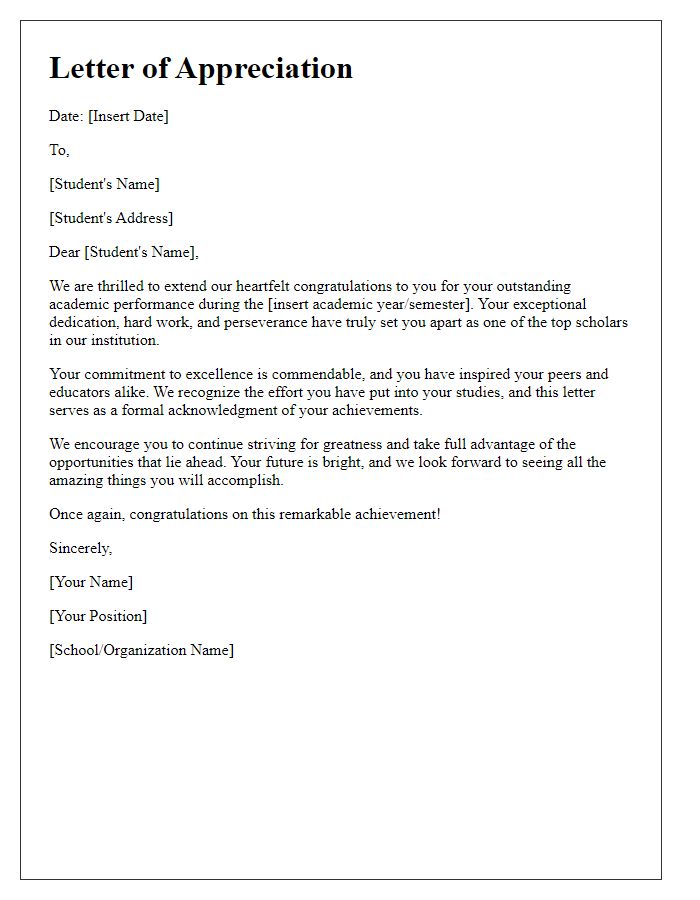
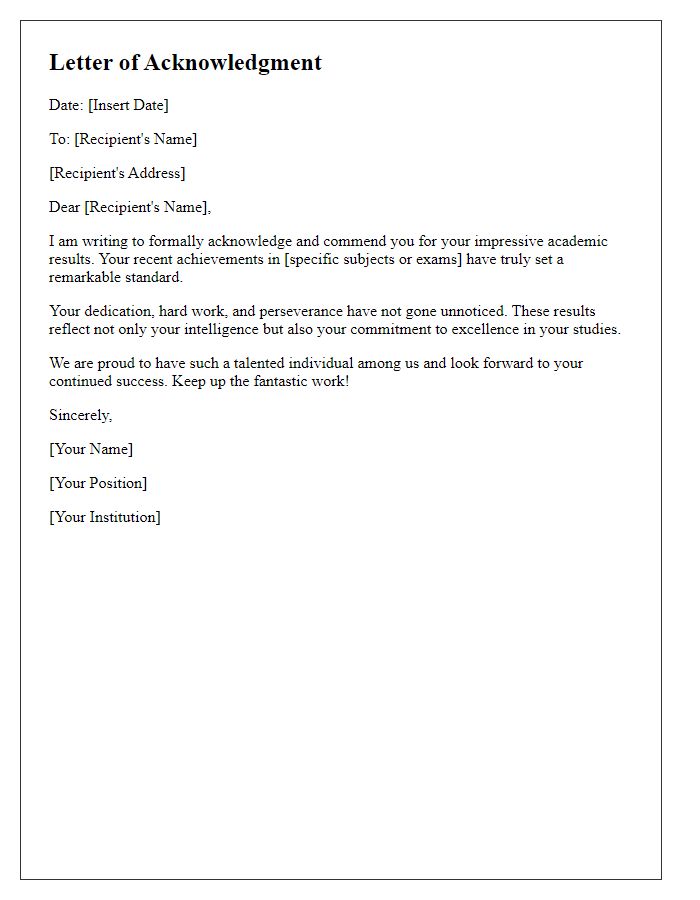
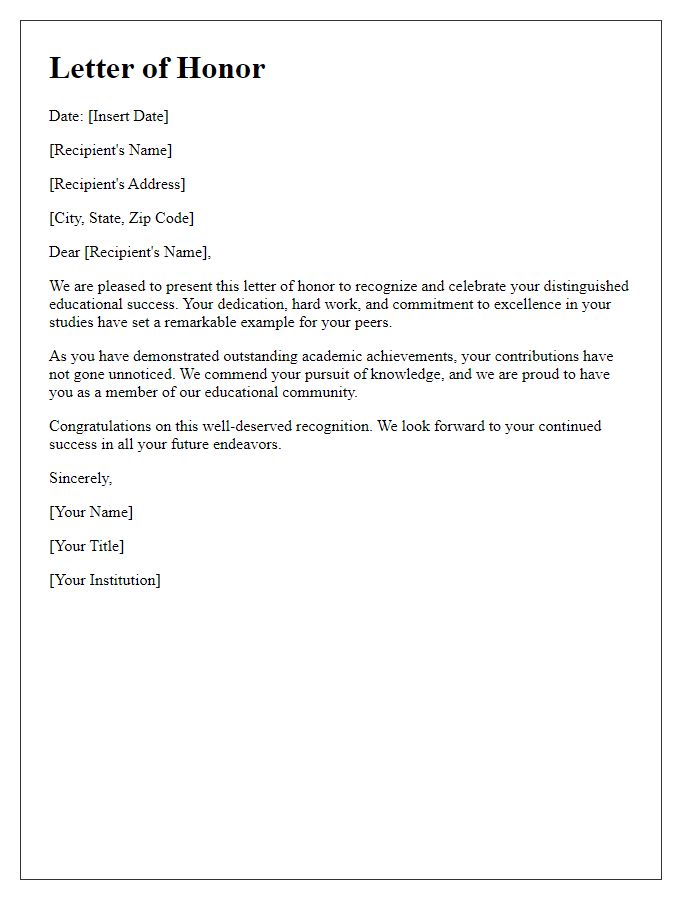
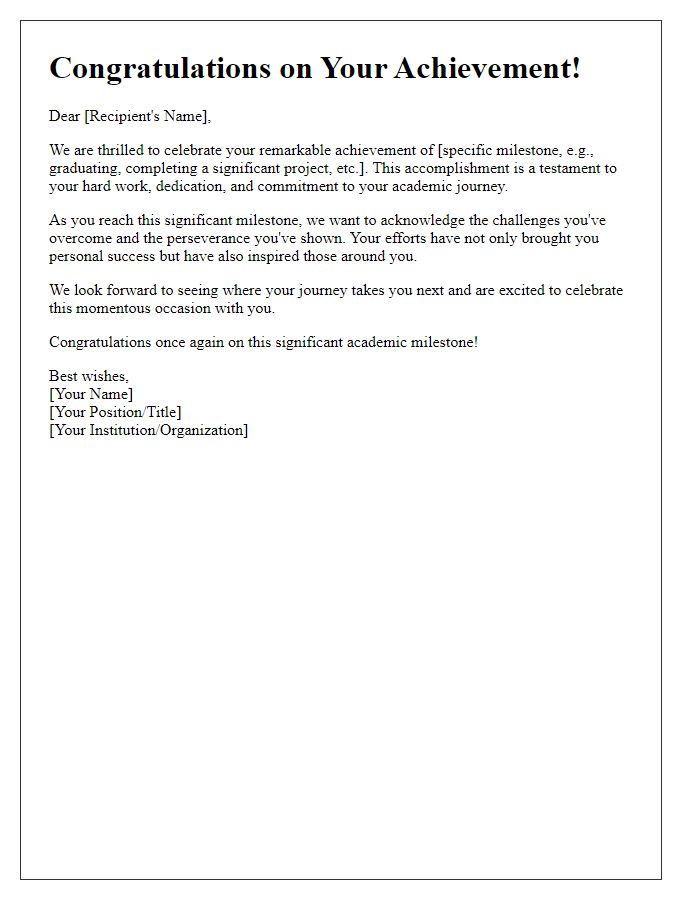
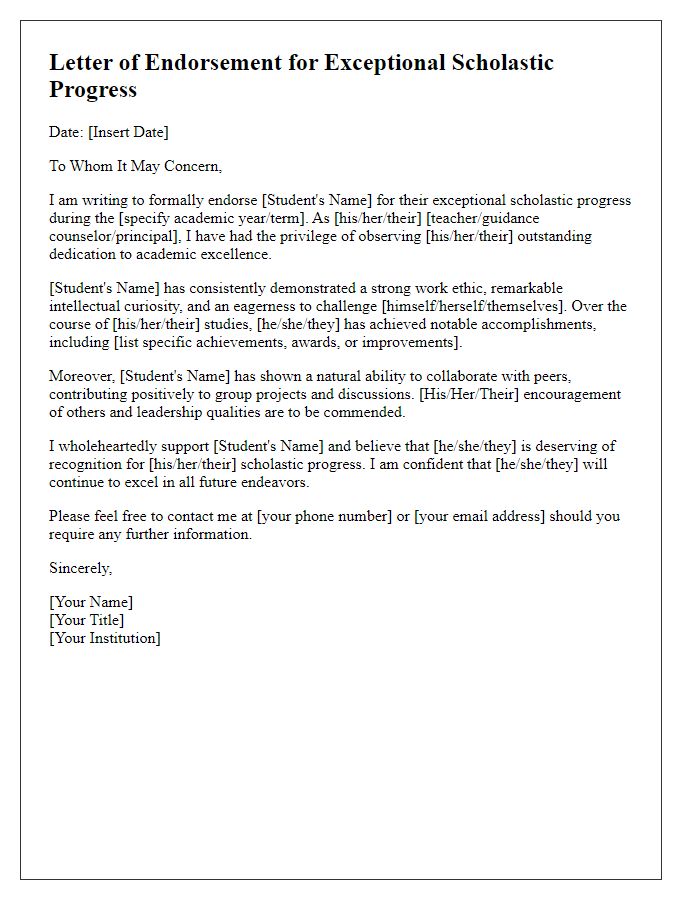
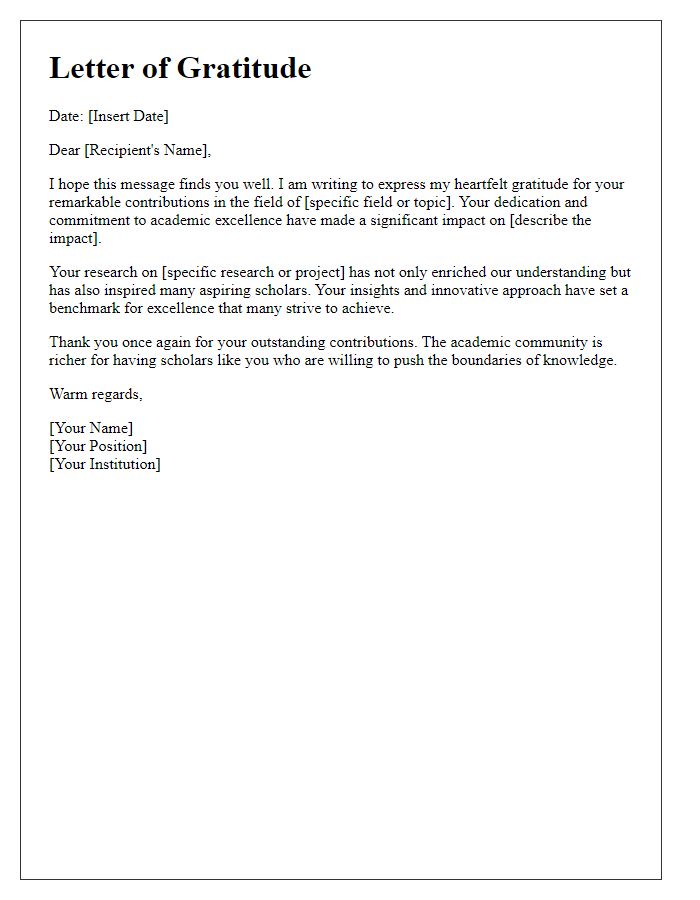
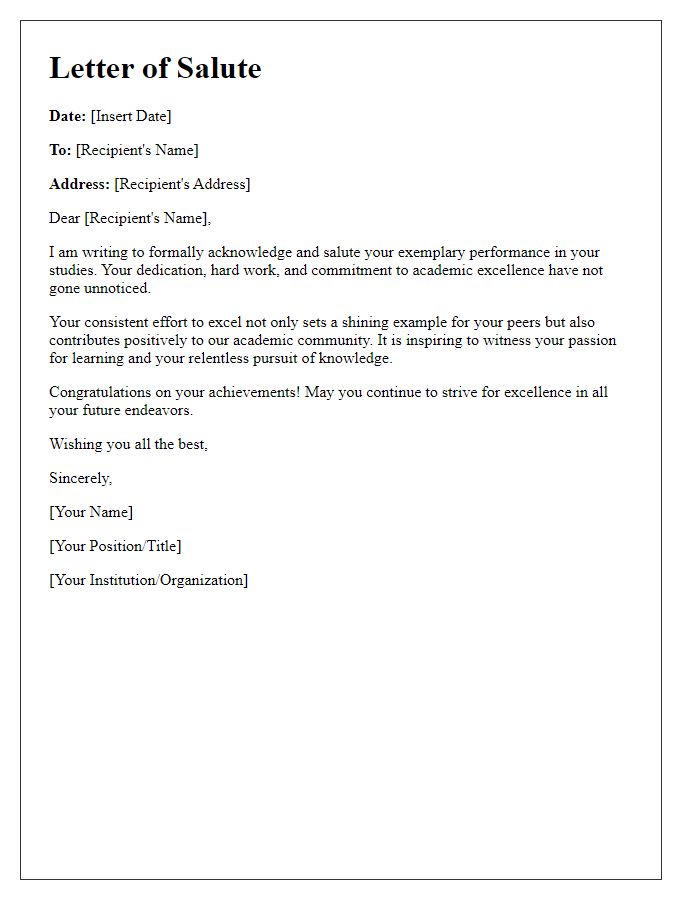


Comments